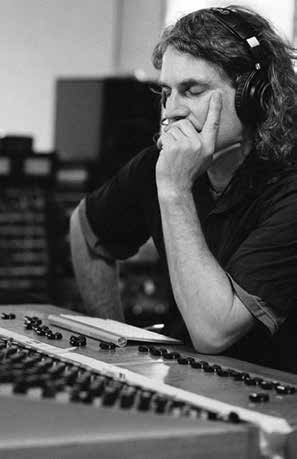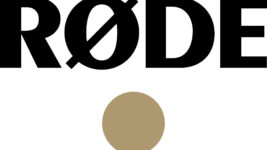News
29 Nov 2019
Blood, Sweat & Ears

Subscribe to CX E-News
LISTEN HERE
by Andy Stewart.
In every respect, music is a form of communication: a human expression, a sonic art.
As a science it’s more about the transfer of energy across the medium of air (and occasionally water), or voltage through an electrical circuit. To others it’s the conversion of ideas and feelings into vibrations (good ones hopefully) or a practised skill with a musical instrument.
For the vast majority of people, however – and without wanting to sound patronising – music is a noise they hear in the background at the supermarket or the footy. For engineers, music production is the understanding of all these things combined, balanced in a new (and sometimes unique) way.
Tom Waits once described the specific art of writing songs as: “just very interesting things to be doing with the air.” In his own inimitable, disarming, self-deprecating way, he was right, and in many respects this philosophy applies to audio in general. We’re all doing something with the air…
But when it comes to communication across the divide between engineer and musician (often from behind glass via a talkback mic), at times there’s a short circuit in that comms link.
Though rarely discussed, this issue can be vastly more destructive to audio recordings than any overdriven preamp or poorly placed microphone. Whole albums can come a cropper in very short order if the engineer and musician(s) can’t get on, communicate civilly or empathise with one another’s perspective.
So let’s discuss this, shall we?
Musican Vs Engineer – The Great Show Stopper
For me, it was the seminal moment where I crossed over between musician and engineer – though at the time I’m sure I didn’t realise it: the day I came across an engineer in the studio who was rude, patronising, insensitive, obstinate, and arrogant.
There you go, I’ve set myself off again!
Seriously though, that infamous day really was the point at which I decided to engineer albums myself. At the time, learning these complicated ropes seemed preferable to ever going through the angst of dealing with the torment I was subjected to that day, even though I knew almost nothing about the technical side of the process back then.
I s’pose I knew how to twiddle a few knobs, crudely read a VU meter, place a few mics and electrocute myself occasionally, but beyond that the big wide world of studio exploration was all ahead of me.
I was naïve and arrogant to think that an engineer did very little apart from unlock the studio door and let us in, press play or record once in a while and rewind the tape quietly while the band discussed its next revolutionary musical move.
In my defence, I was three months shy of 16 at the time, so I was decidedly naïve about everything around me!
But if I learned anything from those early sessions it was that the process of recording music is both stressful and nerve-wracking, especially the first time around, and the last thing a musician needs in that context is to be treated insensitively, or condescended to.
Musicians need all the help they can get to feel comfortable in the altogether unfamiliar surroundings of a recording studio.
Conversely, the studio is an engineer’s comfort zone, his or her home turf. For a budding muso, it is not. It should therefore go without saying that an engineer or producer should never lord their technical prowess over more inexperienced musoes or engineers.
It’s a terrible look, a cheap shot and a form of passive bullying that only drags everyone down. Studios are supposed to be fun places to work, and experienced engineers and producers should know that better than anyone.
So if you’re making everyone feel bad you’re not doing your job. Simple.
Blood, Sweat & Ears
If you don’t know what it’s like to record a musical performance for the first time, think of it as an interrogation – like the ones you might have seen in movies. You’re placed in a glass box where every microscopic detail of your performance is highlighted, scrutinised and recorded by people behind glass.
Though you often can’t see them, they occasionally talk to you as a disembodied voice over headphones, via a talkback switch (that may or may not click horribly every time it’s engaged, crackle in and out, or be left on accidentally while someone in the control room critiques your performance, insults you personally or makes a joke at your expense!)
While all this is happening you’re experiencing myriad emotional upheavals as you try your damndest to record the best thing you’ve ever played, communicate with others in the room (and in other rooms) if you’re recording as a group (or part thereof).
If it’s an overdub, you may be the first cab off the rank – I often was because I was the drummer, and in the ’80s the drums tended to go first, often in a musically isolated way.
(Drums would be overdubbed to a click track with almost nothing else playing. In hindsight, the whole approach was bonkers.)
So now you’re isolated not only from the engineer, sunlight, a clock and fresh air, you’re also separated from some, or all, of the music to which you’re attempting to perform!
This makes recording your best take all the more difficult, and that’s why one of the most important aspect of any engineer or producer’s skill-set is their ability to listen with sensitivity to everything around them, including most importantly, the needs and concerns of musicians, to whom the whole session – let’s not forget – is dedicated.
It’s About The Musicians
Although the relationship between engineers and musicians is a two-way street, and people are doing their best on both sides of the glass, only one side is really under the scrutiny of the recording microphones – the musician’s side. (Of course musos record in the control room too, but you get my point.)
In many respects, the highest priority of your job then as an engineer or producer is to communicate clearly and empathetically, whilst constantly reminding yourself that your task is the easier of the two, not the more difficult.
I know it may not seem that way sometimes; and yes, occasionally people can drive you up the wall. But it’s important to understand that the pressure of recording for the first time can be harrowing, and as the engineer you can choose to do only one of two things: make that experience worse, or better.
And the harder the musician’s task becomes, the more sensitive and reasurring you need to be. Sometimes, when the chips are down, is when many an ill-conceived jibe can slip out of an engineer’s mouth (even though it may have been well-intentioned) that can really destroy someone’s confidence.
When someone’s having a musical crisis on the mic, that’s when all the best engineers know to be on their guard, and mindful of how they navigate the drama.
Going Under The Knife
To me, the role of the recording engineer or producer is a bit like being a surgeon. The more reassuring, knowledgeable, calm and experienced you can seem towards everyone around you – be they fellow engineers, musos, record company staff, assistants or the media – the better you will be at getting the best out of everyone around you.
Conversely, if you make tactless comments at inappropriate times down the talkback mic, or act defensively the moment someone disagrees with your perspective, you’re bound to put everyone on edge.
It also makes you a mediocre engineer.
If I’m being operated on, I want to be certain that the man or woman under the blue robes is supremely confident in their abilities, empathises fully with my plight and appreciates just how stressful it is to be asked to count backwards from 20, knowing that this task might be my last on earth!
No-one likes going under the studio’s knife, especially when you’re not sure what lies on the other side. As head surgeon, you the engineer must be the greatest communicator in the room, the most skilled and the most sensitive to the emotional turmoil you might discover when you open your patients up.
Blood, sweat and ears… might be the name of my autobiography.
Andy Stewart owns and operates The Mill on Victoria’s Bass Coast. He’s a highly credentialed producer/engineer who’s seen it all in studios for the last three decades. He’s happy to respond to any pleas for recording or mixing help… contact him at: andy@themill.net.au
CX Magazine – Nov 2019 Entertainment technology news and issues for Australia and New Zealand – in print and free online www.cxnetwork.com.au
© CX Media
Subscribe
Published monthly since 1991, our famous AV industry magazine is free for download or pay for print. Subscribers also receive CX News, our free weekly email with the latest industry news and jobs.








